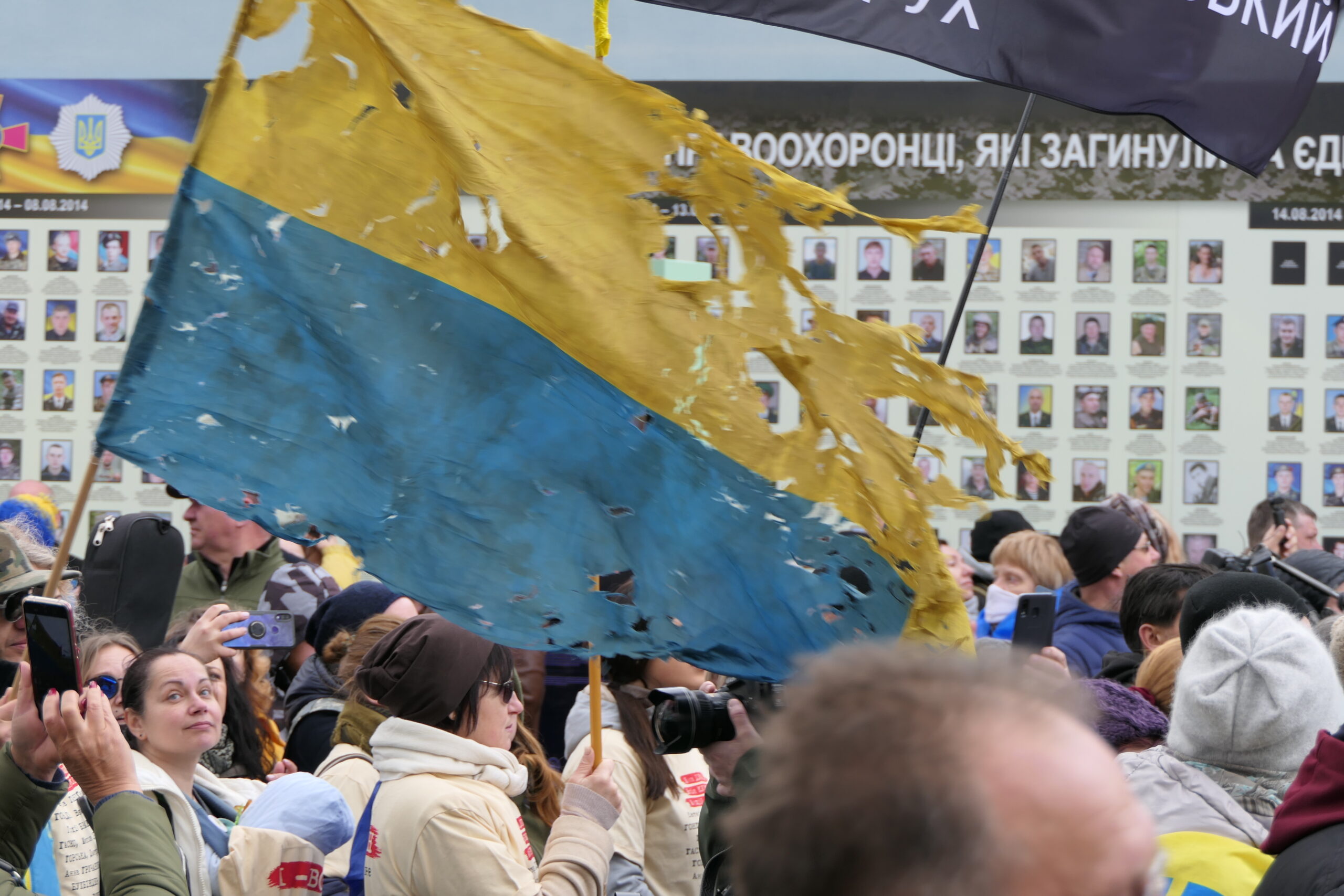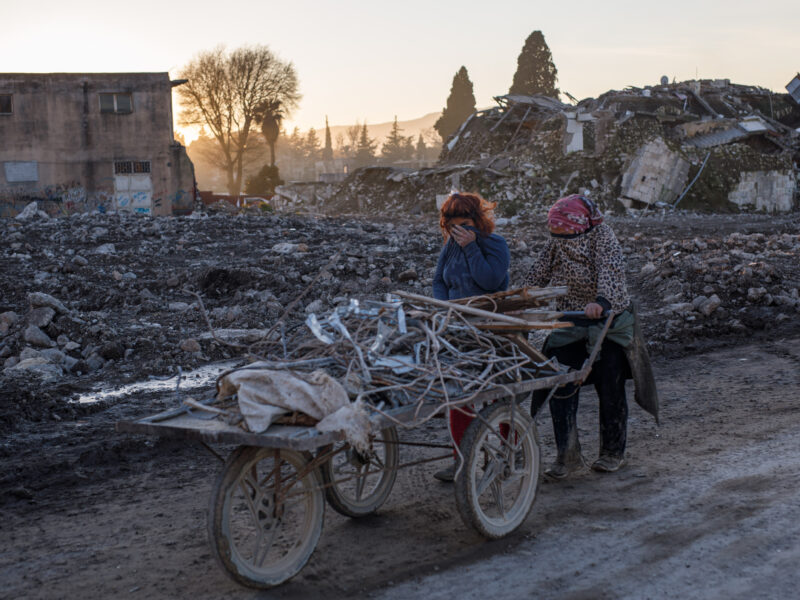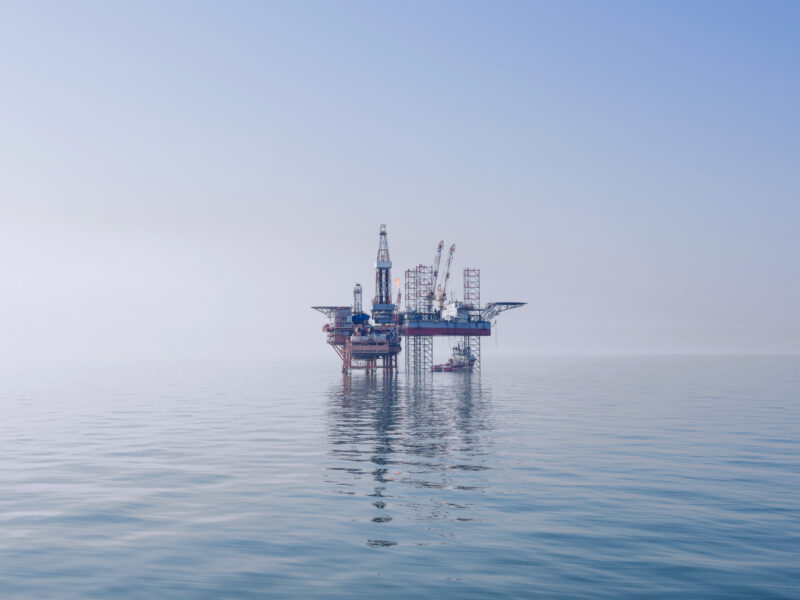The dominant religion of Russian officials is money. There are many ways to exploit that, starting with a long list of individually targeted sanctions.
Russia appears to be preparing for a full scale invasion of Ukraine. Satellite images show the Kremlin has been moving military materiel to the border since October, while intelligence analysis posits that as many as 175,000 troops are headed for border-region Russian army bases. These developments have alarmed both Europe and the United States, with President Biden warning President Putin on Tuesday of “strong economic and other measures” during a two-hour video summit between the two leaders.
The ongoing conflict began more than seven years ago, after the November 2013 Euromaidan Uprising that led to the popular ousting of Viktor Yanukovich, a fantastically corrupt president who had largely been Putin’s ally. The Russian president responded in March 2014 by invading and annexing Crimea, and destabilizing parts of the Ukrainian east. Now, a simmering conflict is poised to get much worse. How should Western powers respond, particularly given that Ukraine is not a member of the EU or NATO?
First, we must dispense with the idea that we can and should do nothing. As someone originally from Ukraine I am a biased observer; but even when I set aside my desire to prevent Putin from killing my relatives, I can see dire consequences for ostensibly disinterested parties. Western states would prefer to pretend that the headache called Vladimir Putin didn’t exist, given all the other headaches they have to deal with — like the global pandemic and rising inflation — but deal with him they must.
A Russian invasion of Ukraine would cause instability throughout Europe and beyond, including a gas pipeline disruption and the loss of a buffer zone between NATO and an ever-belligerent Russia. Adventurism by leaders of other countries—such as Iran, for example—who would see the distraction and the dismay as an opportunity, would likely increase in scope. The current refugee crisis would grow exponentially, with disastrous repercussions. Markets would suffer, as would businesses and aviation.
Russia’s other neighbors — including Central Asian regimes — could become increasingly unstable. Putin is using extreme measures in an attempt to bully Western powers into keeping Ukraine out of NATO; his fear is the prospect of seeing the Western alliance’s military forces right on his border, but this fear holds risks for the entire region. As long as there are no consequences to his actions, Putin will not stop.
The Russian view of Ukraine, which was part of the czarist empire and the Soviet Union, is distorted by imperialist propaganda that describes it as both a nation of buffoons and a threat that Russia must pacify. Russia also sees Ukraine as the stage for another grievance—that of Western triumphalism following the end of the Cold War, which the United States described as a “victory.” To put the matter in crude but simple terms, America insulted Russia and Putin, the former KGB officer, wants revenge.
Putin seems to believe that demoralizing the United States, which has provided aid to Ukraine since it became independent in 1992, would be a major win for Russia. Ukraine is poised to fight, even if their military is destined to lose an all-out war against Russia’s, but images of carnage and violence don’t deter Putin easily. We must understand that the Russian president would be initially unmoved by the sight of Russian soldiers coming home in body bags.
“Who the hell do Ukrainians think they are?” was something I often heard in elite Moscow circles— among businessmen, television personalities, politicians—after the ousting of Yanukovych and the launch of the 2014 war. Russia’s ruling elite disliked the idea of Ukrainians possibly enjoying a functioning democracy and a better standard of living than they had. Moscow sees a stable, prosperous Ukraine as hostile simply because its existence might cause ordinary Russians to ask questions about why they were comparatively worse off.
Because Russia is an extremely unequal society, its elite sees ordinary citizens as less than human and thus not entitled to ask uncomfortable questions, which might lead to popular discontent. In order to maintain their position, the leadership is most likely to choose divide-and-conquer: Incite a bunch of ordinary Russians against Ukrainians, dial up anti-Ukrainian and anti-Western propaganda, and keep everyone distracted with a war.
What’s to be done to prevent this looming nightmare that will involve both bloodshed and wider instability?
First, the Western nations must stop behaving as though they are powerless. Putin sees Western consternation as a sign of weakness.
It’s important, furthermore, to understand that Putin is not an ideologue. He uses ideology as an effective shield, but in practice he’s just another kleptocrat—albeit one with nuclear weapons. Russia’s new elite is composed of his close friends and important functionaries, all of whom benefit financially from their relationship with the president; normal people loathe Putin’s friends because they are so overtly corrupt. That very justifiable hatred is one of Russia’s greatest vulnerabilities, and one of the saddest elements of modern Russian life, which is dominated by stress and suspicion. Putin is the single leadership figure that Russians look to today, but he cannot fix all their problems. Meanwhile, brewing discontent is ripe for exploitation.
Western powers must also draw clear red lines by naming consequences and then acting upon them if Putin refuses to back down. Cutting Russia off from SWIFT (Society for Worldwide Interbank Financial Telecommunication)—the international system that allows banks to carry out trans-border transactions—should absolutely be on the table. This would rattle the Russian economy and have an immediate impact on Russian citizens. Notice how you can’t send money to an Iranian bank from the United States? That’s because Iran has been cut off from SWIFT; this affects everyone in Iran, from the leadership to ordinary people on the street.
A move to cut Russia off from SWIFT would also, of course, impact U.S. banks and German banks, which use it to communicate with Russia. But these banks are more insulated from financial pain because their economies are far more robust and integrated than Russia’s.
The Russian elite loves opulence. It stashes its assets (and, frequently, its children) abroad — popular spots include London and Paris, Manhattan and Miami, the Cayman Islands, and Cyprus. The dominant religion of Russian officials is money. There are many ways to exploit that, starting with a potentially very long list of individually targeted sanctions, such as those already levelled at dangerous Kremlin lackeys like businessman Yevgeny Prigozhin, who has been indicted in the U.S. for the role he played in meddling in the 2016 election; and propagandist Dmitry Kiselyov, the notorious state TV presenter who is Russia’s own Tucker Carlson, only virtually unopposed.
Another factor to consider is Moscow’s fragile relationship with Beijing, with the Kremlin particularly worried about China expanding its influence in Russia’s Far East, where there are real tensions between the local leadership and Putin’s central government. When you want to know what bothers the Russian government, look at what it is restricting or monitoring. The FSB, for example, controls the Russian census in order to cover up resentment of Moscow in different parts of Russia. I was in Moscow when the 2010 census was conducted, and saw how researchers noted that the number of people identifying as “Siberian” as opposed to “Russian” had spiked. Today, writing about these issues in Russia can easily land you on a watchlist. All of this demonstrates that Moscow is worried about Russian territorial integrity.
Russian propagandists tend to yell at me when I make these observations; they are defensive because they know I am telling the truth. Moscow is wary of China’s ambitions in the Far East and elsewhere, how they might affect Russia’s position in areas ranging from the Arctic to outer space, and how an already resentful Russian society might react to their country’s declining position. Washington can leverage that fear in many ways, most saliently by playing up the fact that Moscow today is nothing but Beijing’s uneasy sidekick. Russia is poorer and more vulnerable than China. Its population is declining. In its desire for great power status, it is decidedly outmatched by Beijing. These facts already don’t sit well with Putin, but are particularly infuriating to Russia’s citizens.
Engaging Russia directly would merely serve to create another vortex of violent instability. But Russian private military companies (PMCs) have their fingers in many pies — in countries like the Central African Republic and Venezuela, where they are interested in both resource extraction and political influence. Signaling that all of these ventures are fair game for hostile action might not have an immediate effect—Putin likes PMCs precisely because they are expendable—but many of the Russian leader’s friends have significant amounts of money tied up in these ventures; inflicting pain on them makes him vulnerable.
Most importantly, we must not mythologize Putin. Nor should we adopt the approach of the notorious Fox TV commentator, Tucker Carlson, who claims that Putin is massing troops and materiel because he needs to “secure” his border with Ukraine. This is a cynical political move: Carlson’s ratings go up every time he trashes President Joe Biden. If Biden is opposed to Putin, Carlson will side with Putin, even at the cost of global stability and the international standing of the United States. If Putin came out and claimed he needed his “Lebensraum” now, Tucker would probably cheer him on, and that’s all you need to know about that.
Instead of being like Tucker, we should simply see the depressing system Putin created in all of its stark, granular detail — and understand that it won’t stop after it devours Ukraine. The time to oppose it is now.



